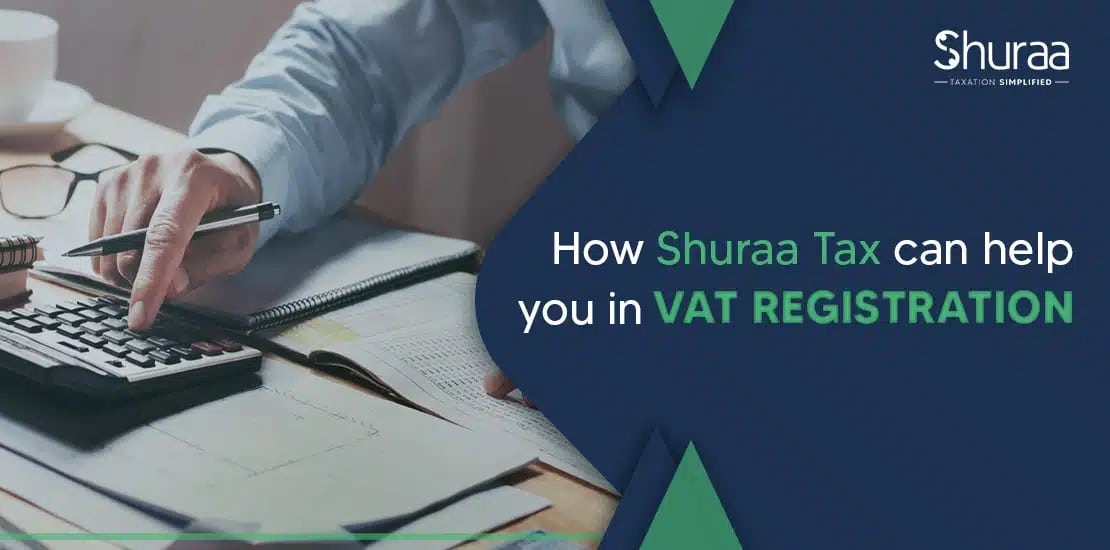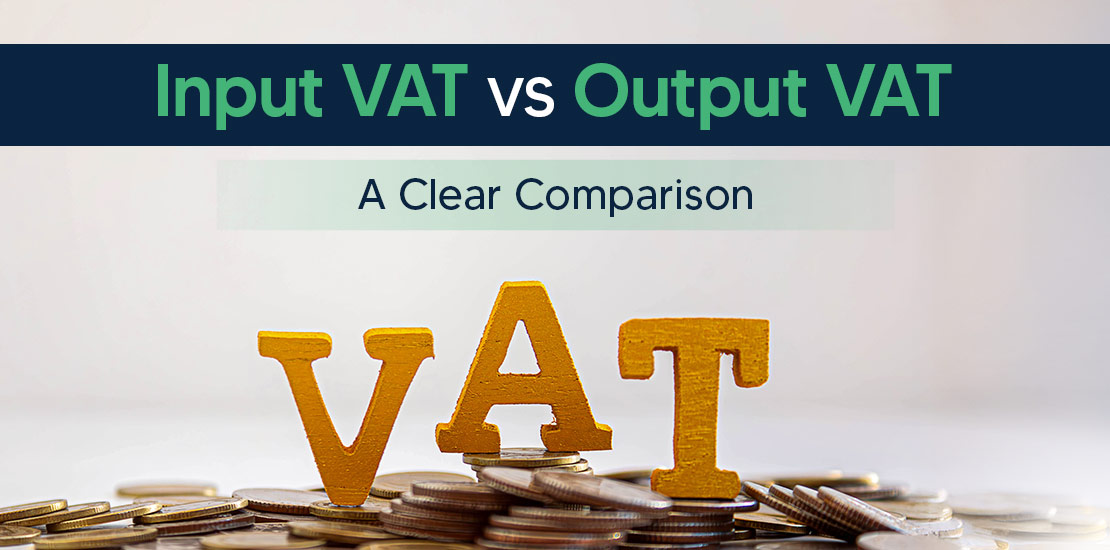Table of Contents
- VAT Registration Thresholds in the UAE
- Circumstances that May Trigger Early Registration
- How to Register for VAT in the UAE for a New Company
- VAT Registration Fees in the UAE
- How to Pay VAT in UAE?
- Who Should Register for VAT in the UAE?
- What are the VAT Exemptions in the UAE?
- VAT Calculation and Reporting Methods
- Record-Keeping Requirements
- Tax Group Registration for VAT in UAE
- UAE VAT Executive Regulations
- Key Takeaways for VAT Registration
- Frequently Asked Questions
In the UAE, products and services supplies are subject to a tax known as the value-added tax (VAT). According to Federal Tax Authority (FTA) regulations, companies with yearly revenues of more than AED 375,000 must register for VAT on a mandatory basis.
FTA registration or VAT registration in UAE is mandatory for businesses that meet certain criteria, such as exceeding a specific annual turnover threshold. By registering for VAT, businesses can reclaim the VAT they have paid on purchases, improve their financial transparency, and enhance their credibility with customers. The process of VAT registration in the UAE involves submitting various documents and information to the Federal Tax Authority (FTA) and obtaining a unique Tax Registration Number (TRN).
But sometimes, the process of obtaining a VAT certificate in the UAE can feel overwhelming. Therefore, we are here to assist you with the VAT registration process, in this blog we will help you understand the importance of VAT registration for businesses in the UAE and provide an overview of the registration process.
VAT Registration Thresholds in the UAE
The general VAT registration threshold in the UAE is AED 375,000 (approximately USD 102,000) per year. This means businesses with an annual turnover exceeding this amount must register for VAT. However, voluntary registration threshold is AED 187,500.
Circumstances that May Trigger Early Registration
In certain circumstances, businesses may be required to register for VAT in UAE even if their annual turnover is below the general threshold. These circumstances may include:
1. Voluntary Registration
Businesses may voluntarily register for VAT if they wish to claim input tax credits on their purchases or if they believe it will benefit their business operations.
2. Importation of Goods
Businesses importing goods into the UAE are generally required to register for VAT, regardless of their annual turnover.
3. Supply of Goods or Services to VAT-Registered Persons
If a business supplies goods or services to another VAT-registered person, it may be required to register for VAT, even if its annual turnover is below the threshold.
4. Government Contracts
Businesses awarded government contracts may be required to register for VAT, regardless of annual turnover.
How to Register for VAT in the UAE for a New Company
Registering for VAT in the UAE is a straightforward process if you follow these steps:
Step 1: Check Eligibility
-
Determine if your business meets the criteria for VAT registration.
-
Check if your annual taxable turnover exceeds the mandatory registration threshold set by the UAE VAT law.
Step 2: Document Preparation
Gather all required documents, including:
- Trade license
- Memorandum of Association (if applicable)
- Emirates IDs or passports of authorized signatories
- Bank account details and proof of bank account
- Business contact information (address, PO Box, etc.)
Step 3: Create an e-Services Account with the FTA
-
Visit the Federal Tax Authority website at tax.gov.ae.
-
Click “Register” to set up an e-Services account.
-
Enter your email address and create a secure password.
-
Verify your email by clicking the link sent to your inbox.
-
Once verified, log in to your account using your credentials.
Step 4: Fill Out the VAT Registration Form
- Log in to your e-Services account.
-
Select the option for VAT registration.
-
Provide accurate details about your business, including:
-
Business name and contact details
-
Bank account information
-
Estimated annual taxable sales and purchases
-
-
Upload necessary documents, such as:
-
Memorandum of Association (if applicable)
-
Emirates IDs or passports of authorized signatories
Step 5: Submit Your Application
-
Review the information you entered to ensure it is correct.
-
Submit your VAT registration form online through the FTA portal.
Step 6: Pay the Registration Fee
-
The FTA will calculate your VAT registration fee based on your estimated taxable sales and imports.
-
Choose a payment method, such as online banking or credit card, and complete the payment.
Step 7: Receive Your VAT Certificate
-
The FTA will review your application and documents.
-
Once approved, you will receive your VAT certificate, which includes your unique Tax Registration Number (TRN).
Step 8: Start Collecting and Reporting VAT
-
After registration, charge VAT on all taxable sales and issue VAT-compliant invoices.
-
Use the FTA portal to file VAT returns within the specified deadlines.
Step 9: Claim Input Tax Credits
-
If you pay VAT on business-related purchases, you can claim input tax credits.
-
File claims through the FTA portal as part of your VAT returns.
Step 10: Maintain Proper Records
-
Keep detailed records of all sales, purchases, and VAT transactions.
-
These records will help you file accurate returns and prepare for any FTA audits.
VAT Registration Fees in the UAE
Smaller businesses with an annual turnover of less than AED 100,000 are charged a flat rate of AED 1,500. Larger businesses may have to pay up to AED 10,000 depending on their turnover. It’s essential to note that these fees are subject to change. For the most accurate and up-to-date information, you should consult with our tax professional.
By following these steps, you can ensure a smooth VAT registration process and compliance with UAE tax regulations.
Related Insights: UAE VAT Changes: Key Amendments and Updates Explained
How to Pay VAT in UAE?
VAT payments in the UAE are typically made through electronic means. This ensures efficiency and transparency in the tax collection process.
1. Calculate Your VAT Liability
Calculate your VAT liability as a first step. To accomplish this, sum up the VAT you charged for your taxable supply and subtract the VAT you paid for your business costs and purchases.
2. Submit Your VAT Return
You must file your VAT return after determining your VAT responsibility. With the FTA’s e-Services platform, you may submit your VAT return online. Details such as your VAT registration number, taxable supplies, input VAT, and output VAT must be included.
3. Check Your Tax Liability
Review the VAT return to determine your net tax liability. If you have a refund due, the FTA will process it accordingly.
4. Make Payment (if applicable)
If you have a net VAT liability, you’ll need to make the payment.
The FTA portal provides various payment options, including:
- Credit Card: You can use a credit card to pay your VAT liability directly through the portal.
- Electronic Funds Transfer (EFT): You can initiate an EFT from your bank account to the FTA’s designated account.
- Direct Debit: Set up a direct debit mandate to allow the FTA to automatically withdraw the VAT liability from your bank account.
5. Obtain Payment Confirmation
Once you’ve made the payment, you’ll receive confirmation from the FTA. This confirmation serves as proof of payment.
6. Keep Records
Maintain records of your VAT payments, including payment confirmations and bank statements. These records will be useful for audits and future references.
It’s crucial to remember that in the UAE, VAT returns and payments are due every three months. After the conclusion of each tax period, you have 28 days to file your VAT return and pay your VAT bill. You risk fines and penalties if you don’t file your VAT return or pay your VAT liability on time. Hence, it’s crucial to make sure you adhere to all VAT requirements in the UAE.
Who Should Register for VAT in the UAE?
In the UAE, a company’s ability to register for VAT is determined by the amount of taxable supplies it makes. Standard-rated supplies, zero-rated supplies, received reverse charges, and imported items are all examples of taxable supplies.
1. Mandatory Registration
If a company’s total value of taxable imports and supplies inside the UAE reaches the statutory registration level of AED 375,000 within the preceding 12 months or within the next 30 days, then the company required mandatory registration for VAT. This indicates that once a company reaches this threshold, it must register for VAT; otherwise, penalties may apply.
2. Voluntary Registration
If a company’s total value of taxable imports and supplies inside the UAE surpasses the voluntary registration level of AED 187,500 within the past 12 months or during the next 30 days, it may elect to register for VAT voluntarily.
If a company’s vatable costs surpass the voluntary registration level, it may also decide to register voluntarily. This implies that even if a company does not exceed the level required for registration, it may still opt to register for VAT voluntarily. This may have certain advantages, such as the ability to deduct or reclaim input VAT.
3. Non-resident Registration
Regardless of the aforementioned thresholds, non-resident companies that make taxable supplies in the UAE are required to register for VAT. This implies that regardless of the amount of their taxable supply, a non-resident firm that offers taxable products or services to non-VAT registrant in the UAE must register for VAT.
What are the VAT Exemptions in the UAE?
Zero-Rated Supplies
Certain goods and services are subject to a 0% VAT rate, including:
Exports outside the GCC
- International transportation
- Supply of crude oil and natural gas
- First supply of residential real estate
- Specific areas like healthcare and education
Exempted Supplies
Some goods and services are entirely exempt from VAT, such as:
- Certain financial services
- Residential properties
- Bare land
- Local passenger transport
VAT Calculation and Reporting Methods
Businesses must calculate VAT on their sales and purchases accurately. The VAT rate in the UAE is currently 5%.
Sales: VAT is calculated as 5% of the total sales value.
Purchases: Businesses can claim input tax credits for VAT paid on purchases used for business purposes.
VAT returns must be filed electronically through the FTA portal. The returns should include details of sales, purchases, input tax credits, and the net VAT liability or refund.
Record-Keeping Requirements
Businesses are required to maintain detailed records of all VAT-related transactions. These records should include:
- Sales invoices: Invoices issued to customers, including the date, value of goods or services, and VAT amount.
- Purchase invoices: Invoices received from suppliers, including the date, value of goods or services, and VAT amount.
- Input tax credit claims: Documentation supporting input tax credit claims, such as purchase invoices and bank statements.
- VAT returns: Copies of filed VAT returns.
- General ledger: A general ledger recording all business transactions, including VAT-related entries.
Tax Group Registration for VAT in UAE
Tax group registration is a mechanism that allows a group of related companies to be treated as a single entity for VAT purposes. This can simplify compliance and reduce administrative burdens for the group.
The following requirements must be satisfied to qualify for Tax Group registration in the UAE:
Related Companies
All members of the group must be related companies, meaning they have a common controlling shareholder or group of shareholders.
No Third-Party Interference
There should be no third-party interference in the management or control of the group.
Same Tax Period
The financial year for each company in the group must be the same. This implies that each company in the group must have the same financial year-end dates.
Consistent Accounting System
A uniform accounting system must be used by all the group’s businesses. They must thus employ the same accounting procedures and tools.
UAE VAT Executive Regulations
The UAE VAT Executive Regulations are a set of detailed rules and guidelines that provide further clarification and guidance on the implementation of the Value-Added Tax (VAT) law in the United Arab Emirates (UAE). These regulations cover various aspects of VAT, including:
VAT Registration:
The Executive Regulations offer comprehensive instructions on the VAT registration procedure, which also includes the registration threshold, the necessary paperwork, and the registration deadlines.
VAT Calculation:
The methods for calculating VAT on sales and purchases, including the treatment of goods and services, and the applicable VAT rates.
Input Tax Credits:
The rules for claiming input tax credits, which are deductions for VAT paid on purchases used for business purposes.
Record-Keeping:
The types of records that businesses must maintain to support their VAT returns and to demonstrate compliance with VAT regulations.
Exemptions and Zero-Rated Supplies:
The goods and services that are exempt from VAT or subject to a zero VAT rate.
Penalties and Interest:
The penalties and interest that may be imposed for non-compliance with VAT regulations.
Key Takeaways for VAT Registration
Registering for VAT in the UAE is an important step for every business to stay compliant with local tax laws. By understanding the steps involved, getting all the required documents ready, and carefully filling out the registration form, you can complete the VAT registration process without any hassle. Make sure to double-check all information, meet deadlines, and follow the rules to avoid any fines or penalties.
If you find the process confusing or need help, it’s always a good idea to get professional advice. At Shuraa Tax, we have a team of friendly and experienced tax agents, accountants, auditors, and financial advisors based in Dubai who are ready to help you with all your tax needs. We can guide you through the VAT registration process and ensure your business meets all the necessary requirements.
Contact us today at +971508912062 or by email at info@shuraatax.com and make VAT registration in the UAE easy and stress-free.
Frequently Asked Questions
1. How to Register for VAT in the UAE?
- Visit the Federal Tax Authority (FTA) website and submit an online application.
- Provide necessary documents such as trade license, passport copies, and bank statements.
- The FTA will review your application and notify you of the decision.
2. How to Maintain Compliance Post-Registration?
- Record Keeping: Maintain accurate records of all transactions, invoices, and VAT calculations.
- Periodic Returns: Submit VAT returns quarterly or monthly, depending on your turnover.
- Payments: Pay any VAT due to the FTA within the specified deadline.
- Audits: Be prepared for potential audits by the FTA to ensure compliance.
3. How to Deregister from VAT in the UAE?
To deregister from VAT in the UAE, follow these steps:
- Submit a deregistration application to the FTA, providing reasons for the deregistration.
- Ensure all VAT liabilities are settled before deregistration is approved.
- Submit a final VAT return to account for any outstanding amounts.
4. What Happens if I Don’t Register for VAT When Required?
Failure to register for VAT when obligated can result in penalties, including fines and potential legal action.
5. Can a Sole Proprietor Register for VAT in the UAE?
Yes, sole proprietors can register for VAT if their business activities meet the required turnover threshold or other criteria.
6. Can I Claim Input Tax Credit in the UAE?
Yes: Businesses can claim input tax credit (ITC), which is the VAT paid on purchases of goods and services used for business purposes. This reduces the amount of VAT payable on their sales.













